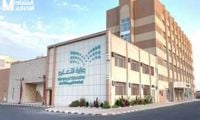The spring break in Morocco for 2025 is shaping up to be a significant event for students, providing a well-deserved respite after a long academic term. Scheduled from March 16 to March 23, this break is designed to align with the academic calendar established by the Ministry of National Education, ensuring it meets the needs of learners while also promoting domestic tourism.
This initiative is more than just a time off from school; it is part of a broader strategy to alleviate pressure on public services and enhance the tourism sector within Morocco. By staggering the spring break across various regional academies, the government aims to manage the movement between tourist cities and rural areas effectively. This careful planning is intended to maximize the benefits of the holiday while minimizing congestion and stress on public services.
Spring break is one of the three main school holidays in Morocco, strategically positioned to serve as a middle ground between the second and third academic semesters. It is a crucial time for students to recharge, engage in recreational activities, and spend quality time with family. The other two major holidays include the winter break, which follows the first semester, and the summer vacation, the longest holiday at the end of the academic year.
During this spring break, students are encouraged to take advantage of their time off in various ways. Some may choose to travel within Morocco, exploring the country's rich natural and cultural heritage, while others might focus on academic pursuits, such as revising lessons and preparing for upcoming classes. Families can also utilize this time to strengthen their bonds through trips and gatherings, fostering a sense of togetherness.
To make the most of the spring break, students are advised to create a daily schedule that balances recreational and academic activities. Engaging in sports and other physical activities is highly recommended as it not only promotes physical health but also enhances mental well-being. This holistic approach to the holiday is aimed at ensuring that students return to school invigorated and ready to excel in their studies.
In Saudi Arabia, the Ministry of Education has also made headlines by announcing the new academic schedule for the year 1446 AH, which includes significant adjustments aimed at enhancing the educational system. These changes are part of a broader initiative aligned with the Kingdom's Vision 2030, which seeks to improve educational outcomes and balance academic semesters with holiday periods.
The revised academic calendar for 1446 includes a precise distribution of three academic semesters, maintaining the necessary number of study days while providing adequate breaks for students and teachers. The school year will commence at the beginning of the month of Muharram, with each semester lasting approximately 13 weeks, followed by short breaks to enhance focus and mental readiness.
Moreover, the updated calendar incorporates official holidays such as the National Day, Eid al-Fitr, and Eid al-Adha, which are strategically placed to promote a healthy balance for both students and educators. The Ministry's aim with these adjustments is to raise the efficiency of the educational system and ensure a higher quality of educational outcomes.
These changes are expected to reduce academic pressure and distribute effort more evenly throughout the year, allowing teachers to provide more educational and training activities, ultimately enhancing students' skills. The adjustments reflect the Ministry's commitment to responding to the needs of the educational field and creating the best possible learning environment.
On another front, the 10th Scientific Forum of the Saudi Society for Heritage Studies took place recently at King Saud University, highlighting the importance of archaeological studies in the Kingdom. Held on May 7-8, 2025, the forum featured 24 researchers who presented their findings on various topics related to Saudi heritage.
The event was inaugurated by Dr. Abdullah Al-Munif, Dean of the College of Tourism and Antiquities, and Dr. Muhammad Al-Ateibi, President of the Saudi Society for Heritage Studies. Dr. Al-Ateibi emphasized the forum's role in supporting the society's initiatives, which have positively impacted archaeological research in the Kingdom.
The forum's agenda included discussions on a range of subjects, such as traditional architectural features in Saudi Arabia, the use of raw materials in prehistoric times, and the production of three-dimensional models of archaeological sites. These discussions aim to enhance scientific thinking in the field of antiquities and contribute to the development of archaeological practices in the country.
Dr. Muhammad Al-Dhaibi, head of the Antiquities Department, moderated the opening session, where he acknowledged the contributions of faculty members who have significantly advanced the field of archaeology. This recognition underscores the importance of academic contributions to preserving and understanding the Kingdom's rich heritage.
Overall, the forum serves as a vital platform for researchers to present their specialized scientific work and engage in discussions that can lead to improved methodologies in archaeological studies. The event reflects a commitment to fostering a deeper understanding of Saudi Arabia's historical and cultural legacy.
As students in Morocco prepare for their upcoming spring break, and as educators in Saudi Arabia adapt to a new academic schedule, both nations are taking significant steps to enhance the educational experience. These initiatives not only aim to improve academic outcomes but also to enrich the cultural and historical understanding of their respective societies.




